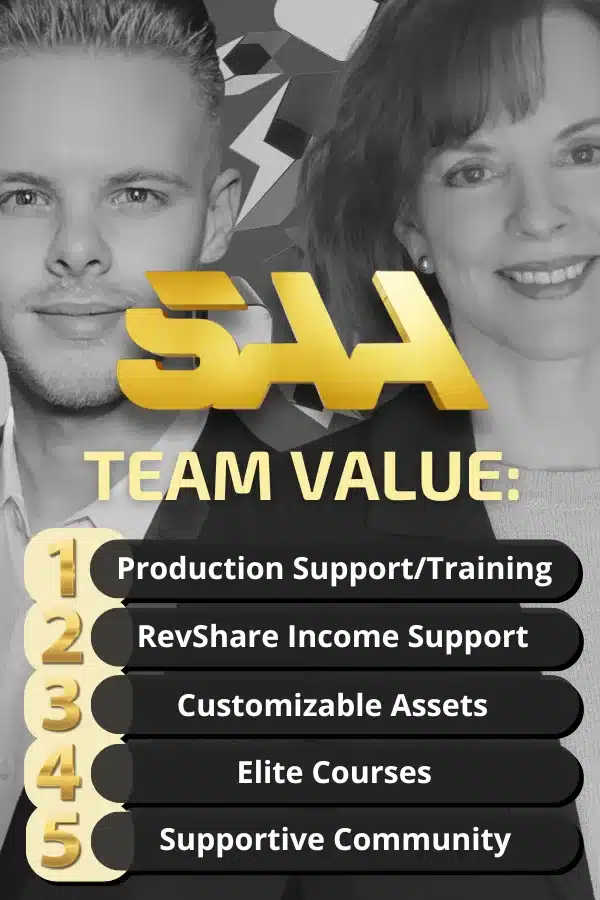Starting in real estate is exciting—but it’s also overwhelming. With no steady paycheck, no client base, and no roadmap, many new agents struggle to stay focused and land their first deal. The learning curve is steep, and without a plan, it’s easy to waste time on low-impact tasks instead of income-generating activities.
Want to hit the ground running and avoid the biggest mistakes new agents make? The first 30 days can set the foundation for your success—or leave you feeling stuck. Here’s how to navigate the challenges, build momentum, and start closing deals faster. Here’s your handy dandy index:
Table of Contents
Starting a Real Estate Career
1. Understand the Real Estate Landscape
Whether you want to be a commercial property manager, residential realtor, or work in industrial real estate, diving into the industry requires exploration. Each field presents a special area of possibility.
Residential real estate is about people’s homes, their apartments, the neighborhoods they live in, and the communities they are connected to. Commercial real estate includes office buildings and shopping centers, serving the needs of the business and investor class.
Industrial real estate includes properties like warehouses and factories that cater to logistics and manufacturing operations. Knowing what these differences are allows you to better determine which one would be more profitable for you.
For example, residential real estate usually offers stable demand because people will always need housing. Commercial and industrial properties can provide much higher returns but have their own set of challenges.
Understanding existing market conditions is key to identifying opportunities and preempting challenges before they arrive. Learning industry terms like “escrow” or “closing costs” enhances communication with clients and peers, ensuring you sound credible and knowledgeable.

2. Choose Your Market Focus
First, you need to consider local market demand when deciding what property types to invest in. A busy metropolitan area is the perfect recipe for a booming rental market.
There has always been tremendous suburban demand for family homes. You can diversify by specializing in niches such as luxury homes or rental properties to make yourself stand out.
Through competitor research, you’ll be able to find gaps in the market. Why are there so few agents serving first-time buyers or investors? Addressing these gaps can put you ahead of the competition.
By defining your target audience, you can market to them more strategically. Whether you’re looking to attract young professionals or retirees, knowing what they’re looking for helps you create the most effective messages.
3. Draft a Comprehensive Business Plan
Whatever your goals are, a solid business plan is your roadmap to success. Begin with a mission and vision statement to be sure you know the outcomes you’re hoping for.
Learning the market in-depth will help you know who your clients will be and who your competitors are. Incorporate online channels into your marketing strategy, such as social media platforms and search engines.
Don’t forget to include offline tactics as well, like open houses and community events. What’s equally important is a comprehensive financial plan.
Account for factors such as initial startup costs, projected revenue, and where the funding will come from. This framework gives you a financial blueprint and roadmap that guides your investments and smart growth.
4. Obtain Required Licenses and Certifications
First, you’ll need to take a pre-licensing education course, which can easily set you back $350. This course of study lays the groundwork for your real estate licensing exam, the first major hurdle in proving you have the knowledge to succeed.
Once you pass the exam, you’ll need to submit your license application, usually accompanied by a background check, to the appropriate state licensing authority. Keeping current with continuing education requirements is incredibly important to not only keep your license but to keep you informed about changes in the industry.
5. Join a Real Estate Brokerage
One of the most important decisions you will make as a new agent is what brokerage to join. Do your homework on different brokerages to find one that matches your long-term goals.
Look at the level of ongoing support and resources they provide, like access to in-house training programs and marketing tools. Look at the commission splits and fees.
These will dictate how much money you will actually make. Developing an open and honest relationship with your supervising broker will set you up for successful mentorship and guidance.
Brokerages typically have a wealth of experienced agents who can help advise you and guide you as you grow.
Building a Professional Network

Developing a professional network is an essential part of being a successful real estate agent. It opens doors to new business opportunities, referrals, and partnerships. Building and maintaining a strong network is critical. Investing in relationships with other real estate professionals is important.
Working together with mortgage brokers, appraisers, and inspectors can help build a strong referral network. When you get involved with your local real estate investing group or association, you connect with other like-minded professionals and widen your network. Scheduling informational interviews with seasoned agents provides perspective and advice that can save you time and headaches.
By getting involved with community events, you raise your visibility and establish important connections. Collaborating with industry associations can help you widen your network and build credibility. By having conversations with your machines and attending local real estate association meetings, you’ll be better connected with potential clients and partners.
If you make it a habit to attend industry events and conferences, you’ll find even more networking opportunities. Having an elevator pitch will help make sure you put your best foot forward at these events. Regularly following up with your new contacts helps develop these relationships to continue providing you with insight into changing market trends and the latest opportunities.
Digital communities, such as LinkedIn, are an incredible tool to display your work, not only to potential employers but to mentors and industry leaders. Participating in online real estate forums and communities is a great way to interact with colleagues. Posting useful content on social media draws in potential clients and helps build your professional brand.
Using those networking events to soak up new ideas, better market trends and best practices will make you more successful.
Developing a Strong Brand Identity

Developing a strong brand identity in real estate is key to enduring success. It takes a keen understanding of how to communicate your brand identity, making sure that your values and mission connect with your ideal audience. This initial step is an incredibly important one.
It defines how customers perceive your company and establishes confidence and authority. A well-developed branding strategy will help you define and express your business’s unique personality, allowing you to shine amidst a sea of competitors. Visible branding on all marketing materials, from websites to business cards, creates strong name recognition.
Create a Memorable Business Name
Selecting a business name that makes an impact starts with coming up with ideas that reflect what you do and the area you serve. Most importantly, it should be memorable and pronounceable, helping clients recall your name at the time they need it most.
Register your domain name to establish a trustworthy online identity. After that, validate the name with future customers to ensure it garners a favorable response.
Design a Distinctive Logo
A quality logo, developed with the help of an experienced graphic designer, will go a long way to establishing your brand visually. It needs to fit the personality of your brand and the values of your company, incorporating colors and typography that engage your ideal audience.
Building this logo into every marketing piece helps create brand uniformity, which is key to developing brand recognition.
Formulate Your Unique Selling Proposition
Determining what makes you different from other real estate agents is the first step. Highlight what sets you apart in skills, experience, or services uniquely advantageous to your clients and clearly market this value proposition in all marketing initiatives.
Utilizing testimonials and case studies to make your selling points can help drive the point home, demonstrating the ways you uniquely serve and treat your clients.
Crafting an Effective Marketing Strategy

Understanding your niche is the first step in developing the ideal marketing strategy for your real estate business. Know who would rent or buy your properties, then create a strategic plan to target them through multiple channels.
This plan needs to identify specific, measurable goals in order to provide benchmarks to understand how well you’re doing. Strike the right balance with your budget between digital and traditional marketing and leverage performance analytics to continuously improve your tactics.
Establish an Online Presence
A polished website is your virtual front door, letting prospective clients browse your offerings and listings. Optimize for search engines to increase your content’s visibility, and make it mobile-friendly, which can help improve your search rankings and visitor experience.
Feature an active blog to showcase your expertise and attract prospective clients.
Utilize Social Media Channels
Given that there are 4.7 billion social media users worldwide, that’s where your audience is. Select social media channels that align with where your audience is, post visually interesting and dynamic content, and engage with your audience.
Use paid ads to supplement organic reach and enhance credibility.
Invest in Quality Visual Content
Hire expert photographers to get high-quality images of your property. Develop virtual tours and promotional videos, which have become must-haves for marketing properties.
Infographics are a great way to display complex market data in a digestible way, while still matching your overall brand aesthetic.
Implement Email Marketing Campaigns
Create an email outreach list. Provide educational newsletters and use list segmentation to send more targeted and relevant messages.
Track key performance indicators to continue improving strategy.
Financial Management in Real Estate
Identifying and managing the financial side of real estate means having a sharp eye focused on expenses as well as revenues. To start, understand costs that are typical such as licensing fees and marketing costs. These costs can really add up, hurting your bottom line.
Then, figure out expected revenues from new commissions and new sales. Remember that the market is volatile, and the worst scenario is a major market shift that leaves you holding the bag financially. Planning for taxes and other obligations is key to not being caught off guard.
Manage Expenses Wisely
Tracking all company expenditures is key to managing expenses. This allows the county to find savings opportunities. Focus on the most productive spending that has a direct impact on growth.
Accounting software helps to mitigate that risk by greatly automating and simplifying this process. Continually evaluate your budget and make the changes necessary to protect your financial future.
Plan for Long-term Financial Growth
Identifying your financial goals helps to steer your business in the right direction. Investing in a variety of different types of opportunities can help spread and diversify income.
Putting profits back into marketing and professional development fuels the cycle of success. Keep a pulse on what’s happening in the industry so you can pivot your strategy in the right direction.
Providing Outstanding Customer Service

An unwavering commitment to client satisfaction earns loyalty and leads to referrals. Think big, start small. Make a customer service policy that’s a promise to your clients to make them feel like they matter and they’re heard.
Training yourself and your staff in best practices for communication is crucial. Keep in mind that communication is a two-way street, and being present as a listener helps clients know that you’re truly committed to their journey.
By consistently asking for client feedback, you’ll be able to hone and improve your services to better suit the needs of your clients.
Build Trust with Clients
Being transparent and honest in all interactions, whether in-person or online, will help build credibility. Delivering on what you promise makes you trustworthy, and publishing case studies and testimonials makes you even more credible.
Professionalism in every communication and transaction should be the standard. With just 11% of consumers fully trusting real estate agents, repeat behavior can go a long way in building your credibility.
Respond Promptly to Inquiries
Having a standard response time for new inquiries is essential—potential clients don’t like waiting around for hours or days. Automated responses are a great way to acknowledge the first point of contact, but when it comes to follow-up communications, that’s your time to dazzle.
Continuously update clients with information at every stage of the buying or selling process, and set weekly meetings to keep the lines of communication open.
Offer Personalized Services
Customizing your approach to address each client’s specific needs is the key. Deliver personalized property suggestions tailored to their interests.
Things such as home staging or a comparative market analysis go a long way. Follow up after the sale to stay connected and nurture your network.
Since 40% of home buyers begin shopping online, you can give your firm a competitive edge through customized, niche services.
Continuous Learning and Development
There’s no profession where it’s more important to stay up-to-date than real estate. With ever-changing industry standards and regulations, it is critical to stay in tune with the field. The best way to stay on top of this topic is to subscribe to relevant industry publications and newsletters.
Webinars and conferences offer firsthand knowledge from experienced professionals. Social media provides another, new layer of education through platforms where you can follow prominent real estate professionals who are providing tips and advice. Market data analysis prepares you to anticipate shifts, allowing you to adjust strategies effectively.
Working through hands-on workshops and learn-by-doing seminars is the smartest, most forward-thinking approach to honing your craft. Local workshops can get down to the nitty-gritty of what makes real estate tick. Engaging with trainers and speakers not only deepens your learning experience but helps to replicate the relationships you form with your peers.
Taking notes and doing the work of applying new concepts to your practice is crucial. When we share our own insights with colleagues, we create a web of collaborative growth.
Pursuing other designations like CRS or ABR helps you stand out. This promise to the pursuit of learning is what makes you more credible and knowledgeable in a crowded marketplace. It guarantees your future career success.
Launching Your Real Estate Business
Building your launch plan is the first step in establishing a successful real estate business. Create a plan Start by sketching out major activities and timeframes. Walk you through the entire process, from getting your real estate license to establishing a strong online presence.
Don’t forget that 90% of homebuyers start their search online, so make it your mission to lay the groundwork for a visible digital footprint. Use time and money efficiently Be prepared for costs associated with a new business, including licensing costs, marketing costs, property upkeep costs, etc.
Creating a budget Budgeting realistically for your launch event and campaign promotional activities will help you stick to your plan. Work with local media to get your business launch announcement covered. An effective press release is a great way to tell your ideal audience that you’re open for business and ready to help them!
Use free social media channels to create excitement. Real estate platforms such as Zillow, Realtor, and Redfin increase your business’ exposure even more. Plan parties, launch events, or open houses to build buzz for what you’re doing.
Invite relevant influencers, offer desirable incentives, and ensure you get contact info from all attendees for future outreach. These measures result in a much more welcoming first impression of your community.
Key Takeaways
- Explore the various real estate sectors including residential, commercial, and industrial. Understanding this will help you determine which niche is best suited for your unique talents and passions! This is an important first step to starting your new career in real estate.
- Choosing a market focus requires evaluating local demand and considering specialization options such as luxury homes or rental properties. Identifying gaps in the market can help you stand out from competitors.
- Your detailed business plan should have your mission statement, in-depth market research, detailed marketing strategy, and a financial plan. This plan will be your map on the journey of your new real estate business.
- Getting all the required licenses and certifications means going through pre-licensing education, passing multiple exams, and maintaining continuing education. This will keep you on the right side of compliance and uphold your profession’s credibility.
- Meeting other industry professionals, and going to conferences and events will deepen your network and offer new perspectives to help you better understand what’s happening with market trends. This can result in greater collaboration and referral opportunities.
- So creating a strong brand identity and a smart marketing strategy is important in order to stand out from the competition and attract clients. Brand consistency across all platforms and utilizing online tools will help you stand out from the crowd and get the attention of more potential clients.
That’s a Wrap!
Your first month in real estate sets the tone for your success, so focus on building your network, mastering the basics, and taking action daily. Stay consistent, keep learning, and don’t get discouraged—momentum builds over time, and every conversation is a step toward your first deal!
Join Our FREE Team at eXp Realty
Join our team with eXp Realty – the only profitable publicly traded brokerage over the past five years and holds the prestigious title of the best brokerage to work for. The benefits of eXp Realty are unmatched and will truly exceed your expectations!
When you join our team, Smart Agent Alliance, you’ll get more FREE value than you’ll get anywhere else in the real estate business.

Some of What’s included: Access our exclusive SAA Vault Assets to get leads rolling in while you sleep and enhance your business efficiency; attend weekly team video calls filled with invaluable insights and top agent strategies; and receive the Social Agent Academy Program and Investor Army Courses — all of this with more than a $2700 value – absolutely free. And that’s just the beginning! Explore more about our robust team benefits.
Don’t let this opportunity pass you by. Transform your real estate career, maximize your income, and secure your future. Contact us now to schedule a video consultation or email us at team@SmartAgentAlliance.com. We’re here to ensure your success.
Frequently Asked Questions
What are the first steps to starting in real estate?
Start with getting your real estate license. Study your state’s requirements and take the required prep classes. You’ll need to pass the licensing exam to get started in this competitive industry.
How can I build a professional network in real estate?
Go to industry conferences, become a member of your local chapter of realtors, and network online on websites such as LinkedIn. Connecting with experienced agents can open you up to valuable opportunities and lessons.
Why is developing a strong brand identity important in real estate?
In a highly competitive environment, a strong brand identity helps you to stand out. It helps to foster consumer trust and recognition, which is critical to helping you to attract and retain clients.
What should an effective real estate marketing strategy include?
Prioritize website optimization, social media channels, and local SEO. With consistent branding and some clever targeted advertising, you can make a big impression on buyers before they even arrive.
How should I manage finances in a real estate business?
Stay on top of your expenses and profits. Use budgeting tools or a financial advisor to help keep your business healthy and growing.
What makes outstanding customer service essential in real estate?
Providing exceptional service will keep your clients happy, coming back for more, and sending you referrals. It creates a cycle of goodwill and long-term success.
Why is continuous learning crucial in real estate?
The market is always changing, and being aware of new trends, laws, and technology will keep you one step ahead and in the know. Take workshops and further education on a consistent basis.








